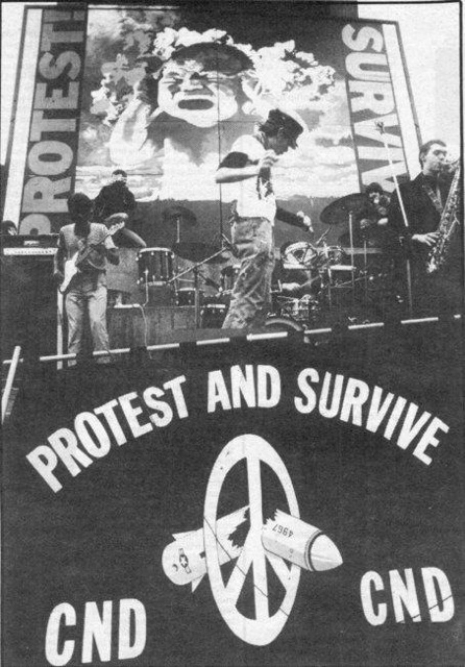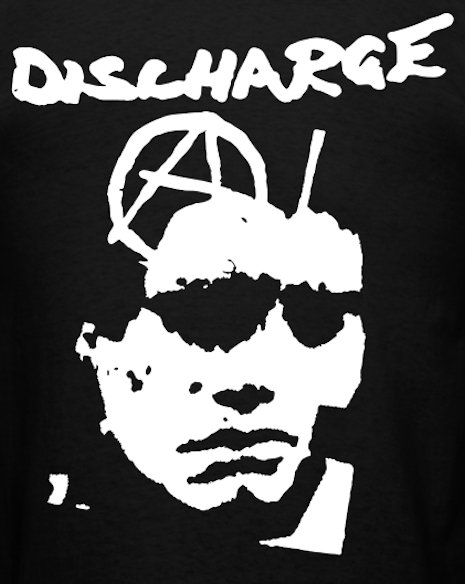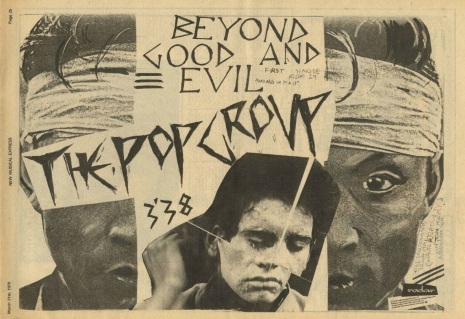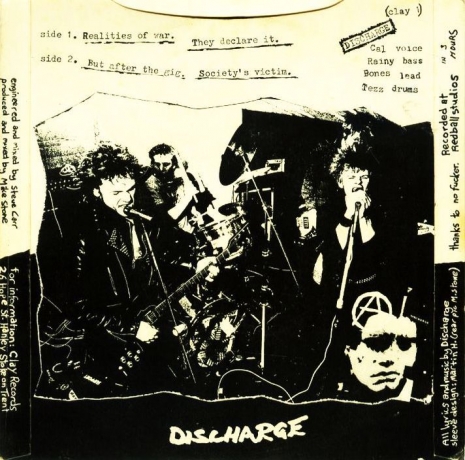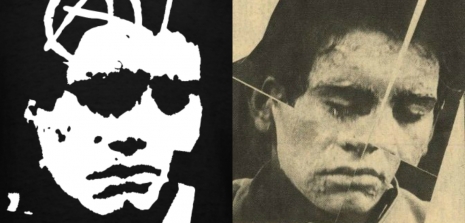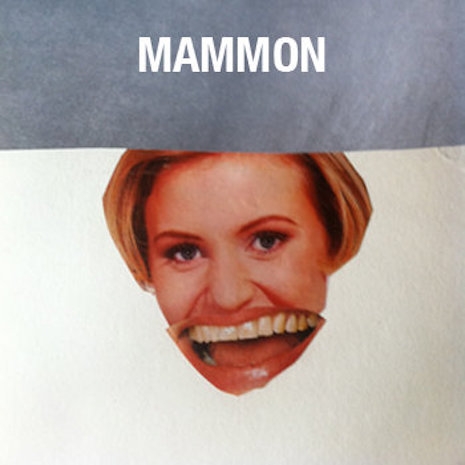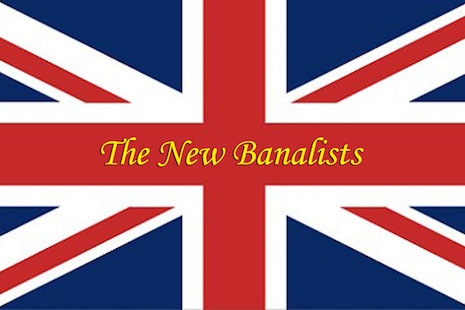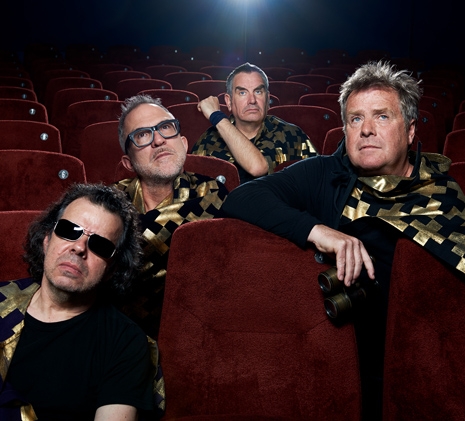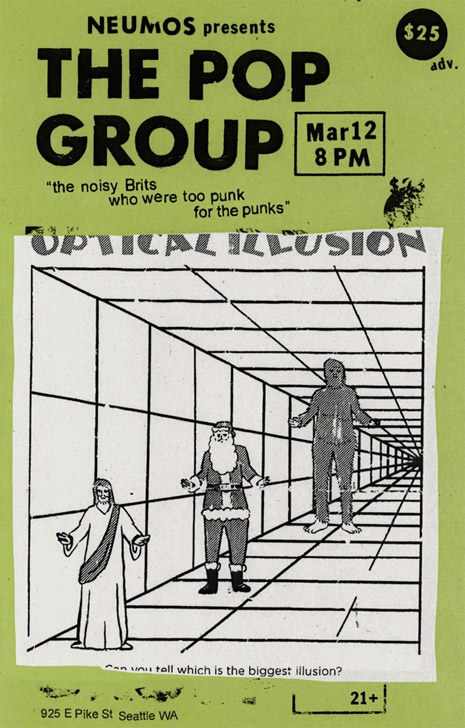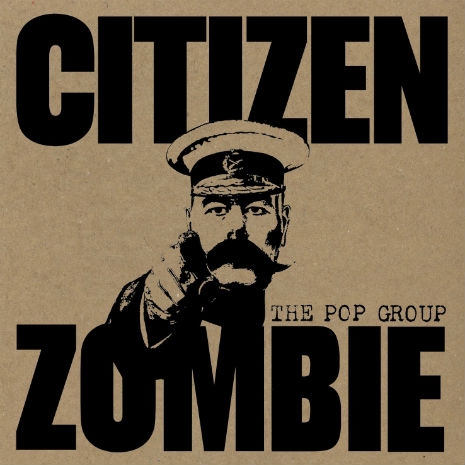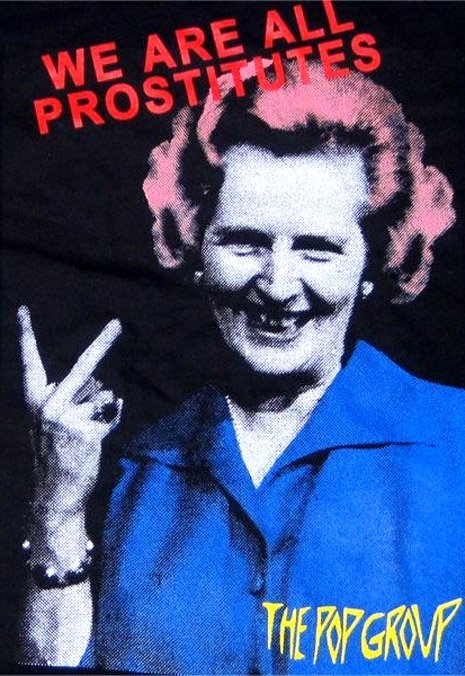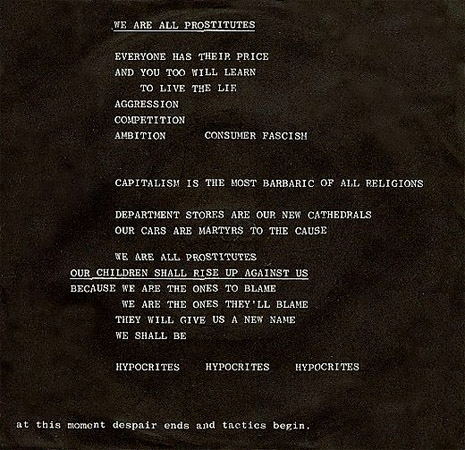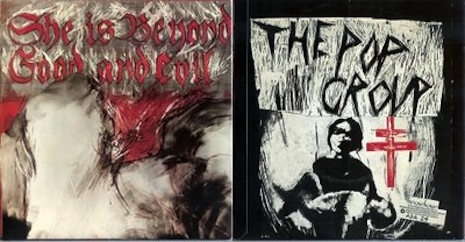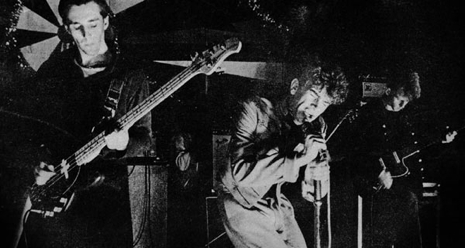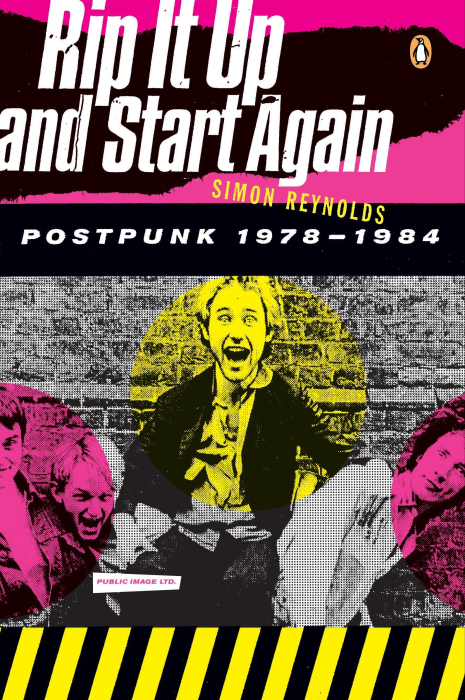
“BALLSED IT UP AND BEGAN AGAIN”
A TRANSATLANTIC TELEPHONE SCREAMPLAY
(SPOILER ALERT – SCENE 1: – MOSTLY FICTIONAL – SCENE 2: 100% FACTS)
Written by Mark Stewart, answers by Russell Craig Richardson & Nikolaos Katranis
MARK STEWART IN CONVERSATION WITH FILMMAKERS RUSSELL CRAIG RICHARDSON & NIKOLAOS KATRANIS
INT. LACK-LUSTRE RECORDING STUDIO SUITE, IN LOCAL STATION ‘RADIO ZIDER’. BUILT IN ‘80s, STAINED BEYOND REPAIR IN SHADES OF ‘COFFEE & CREAM’. SOMEWHERE IN THE WILD, WILD, WEST, OF SOMERSET, 2022. DISSECTED SPLIT SCREEN SHOT. STUDIO GLASS BETWEEN RECORDING BOOTH AND CONTROL ROOM RUNS VERTICALLY DOWN THE MIDDLE. IN THE CONTROL ROOM IS A TV SCREEN THAT CLINGS TO THE WALL BRACKET WITH ½ ROLL OF DUCT TAPE AND A WING AND A PRAYER. IT ROLLS 24/7 WITH PRE-RECORDED MUSIC VIDEOS/SHOWBIZ & CELEBRITY GOSSIP. MARK STEWART’S MIC IS PERMANENTLY ON. SA 1 & SA 2’S ARE OFF, ALTERNATING TO ON, WHEN STATED. NIGHT.
MARK STEWART (Peter Pan of THE POP GROUP), casually dressed in one of his band’s T-shirts emblazoned with the title of their track “She’s Beyond Good and Evil’ and a ‘man/cash/bum’ bag round his waist. He stands, one side of the glass in the recording booth. He grapples to familiarise himself with his new, temporary studio surroundings (courtesy of his insurance company), after having been forced to evacuate during a flood, from his usual state-of-the-art studio of choice – in the Hamlet of EVANELPUS. Excited, in anticipation of hosting a transatlantic call with (Filmmakers RUSSELL CRAIG RICHARDSON & NIKOLAOS KRATRANIS), he is committed to creating a convivial atmosphere for his 2 guests and collaborators. Radio Zider’s Producer is on extended leave (again). In his absence, his 2 frazzled Sound Assistants (SA 1 & SA 2), deputise, behind the desk in the control room. SA 2 (Millennial) irascible, dressed in ‘street gear’, stands twiddling his knobs. SA 1 (Gen Z) lacks confidence by comparison to his slightly senior colleague, dressed in ‘smart casual’, he sits perched on edge of seat, neck craned, firmly focused on TV screen. With their once high-hopes of high-earnings now jaded and putrid pallors further faded, they no longer consider sharing personal details such as their names with their Manager’s clientele, necessary.
MARK STEWART: (crooning into mic)
Testing, testing, Mario Testino… testing, testing, tes-tos-te-rone, are you there?
SA 1:(turns mic on and yells)
YOU’RE LIVE
SA 2:
Fucking Muppet. What’s his band called again, Poptastic?
SA 1:(with mic still on in unexpected, but self-congratulatory pride)
The Pop Group
MARK STEWART:
(beaming) Yeay, that’s us. Freaks R Us.
SA 2: (stoney faced)
That figures. Speak for yourself you tosser. Never heard of ‘em.
NIKOLAOS KRATRANIS: (voice down the line)
Hey, Mark, Hi. Good to hear you. Busy? What have you got on right now?
MARK STEWART: (chortling)
Thermals and a face-mask… Of the cucumber variety you understand?
RUSSELL CRAIG RICHARDSON & NIKOLAOS KRATRANIS:
(silence)
SA 1: (squinting into recording booth, his eyes deceiving him)
What did he say? What the…? What is it? A strap on?
SA 2:
Nah, you plank. He ain’t got nothin’ on, other than his handbag and that dumb fucking Tee. He’s getting ‘em at it. I pity ‘em. What does it say?! ‘She’s Beyond What? Beyond anyone with a brain, for sure. Who is this clown? He’s worse than pissing Partridge.
MARK STEWART: (cheerily)
Jo-king! Seriously guys? I’m groaning under the sheer weight of it all. (laughing)
SA 1: (hesitantly)
My best mate, says his Dad’s mate, is one of his homies.
SA 2:
Oh yeah, who’s that then?
SA 1:
Daddy-G.
SA 2: (scoffs in incredulity)
Bollocks is he. G’s super-cool. He wouldn’t entertain this geezer, G’s massive, literally mate.
SA 1:
I know his Dad, he wouldn’t BS, he’s solid.
SA 2:
What in – shit?
(SA 1 looks disheartened)
MARK STEWART:
Guys? Russell? Nikolaos? Did you catch that stateside? I’m groaning under the weight of all our gifts, that are ready to go.
SA 2:
Now he fancies himself as one of Santa’s little ‘elpers – Jee-zus. YOU’RE NOT RELEVANT MATE, WHO YOU TRYIN’ TO KID?!
RUSSELL CRAIG RICHARDSON & NIKOLAOS KRATRANIS: (together)
Hey Mark, great, got you back, we can hear you now.
MARK STEWART:
Cool, Parkinson had nothing on me, you know.(Laughter)
SA 1:(Suddenly excited, fixated by TV, tugging SA 2’s shirt, pointing to TV)
LOOK!!!! Seen what he’s wearing?!! It can’t be, can it?… It Kanye, ye know.
(SA 2 turns to face TV screen, eyes wide)
SA 2: (reading, in disbelief,)
She’s…Beyo… Fuck me!
SA 1: (feeling self-assured)
No thanks.
SA 2:
Fucking fake news!!! Fucking Photoshop!!!
SCENE 2
MARK STEWART: Russ, Nik, OK, we’re ready to roll and in control again now. Sorry about that, few technical issues there. I blame the scrumpy. The locals can’t get enough of it. “Let’s start at the very beginning…” So, joking aside, I’m stoked to be catching up with you. Having now had the pleasure of working with you both twice – firstly on your film Rip It Up And Start Again and secondly on the making of the video with myself and my collaborators – Stephen Mallinder (Cabaret Voltaire, Wrangler) and Eric Random (Nico and The Faction) – which accompanies my new single Cast No Shadow (taken from the forthcoming album VS). For context, I should add that Cast No Shadow was made in response to Rip It Up + Start Again, which in turn, you both made in response to Simon Reynold’s 2005 book of the same name. The film boasts a wealth of material previously unearthed, which is a credit to yourselves and your contributors – of which there are too numerous to mention here – so will instead just urge people to go and explore, follow the links. It’s a real treat to turn the tables – as a Clairvoyant might say – and conduct a Directors’ Q&A with you both. You’re busy, I know, so I’ll try to butt out and stay on-piste. Here’s a starter for 10, to both of you: What was your personal mission statement prior to embarking on this journey, in your joint creation of the rarified gem that is your Post-Punk documentary film – Rip It Up + Start Again?
NIKOLAOS KRATRANIS: The era was pointedly anti-star, and if there is ever going to be a comprehensive view of this era as a whole, then that should be the approach. The central character of this film is the Zeitgeist itself. There seemed to be one, across the world, and we are letting the artists of that time show us its source and shape, its sound and flavour. Also, many of the best acts put out a record or two and it was over… It was an ocean of artists, not an Olympic pantheon… a constellation of daring sorties rather than a field of careerists. Once “stars” inevitably did emerge, you then have New Wave.
MARK STEWART: Truth. Russell?
RUSSELL CRAIG RICHARDSON: We wanted to do a film where the protagonists themselves are given time to tell it from their perspective – and to follow their leads on what and who was important from inside the scene(s). Though there was no formal ‘movement’, it’s surprisingly and hearteningly clear that there most definitely was this Zeitgeist, stretching from the rust belt in America, through the grey 70s of the UK, and on to culturally reconstructed Germany. It ended up being an incredibly fertile and diverse field.
MARK STEWART: What was Post-Punk for you at the time ‘78 onwards?
RUSSELL CRAIG RICHARDSON: I came to London in early 1979 and immediately fell in with a disparate bunch of filmmakers and musicians. At that time we’d all been shaken up / inspired by the energy of punk, though not necessarily fully convinced of its longevity, or its ability in purely musical terms to go the distance. Nobody called it post-punk at that time, obviously, in fact I don’t think I even heard the term until Simon’s book came out in the mid 2000s. But there was new music coming out week after week – as singles – no albums yet – all by new artists, basically people you’d never heard of. It was very pure in some cases and I think that’s what grew into the post-punk envelope, but there were a lot of chancers, hopping on the punk bandwagon, and many musicians who were pretty decent, but not really coming up with anything radically new – just embellishing their previous style with a bit of spikiness. I’d put some people I really liked in that group, like Elvis Costello, Ian Dury, Graham Parker or bands like Dexys and the Specials (though I think these latter did break out into something fantastic, later on, with ‘Ghost Town’ and ‘In The Studio’). I even had a few singles by The Police!
But I was much more interested in the very spare and odd sounds that were coming out from Scritti Politti, Gang of Four, The Pop Group, Rip, Rig & Panic, The Cure (yes – they were a key band at the start. ‘Three Imaginary Boys’ was a real landmark work). The Fall would require a whole interview of their own, as I am a fanatic, so for now will just say ‘Hex Enduction Hour’. There was a gap between the first Public Image single (stunning) and the first major label album by one of the ‘new bands’ (which might have been Go4’s ‘Entertainment!’?) when everything was just 7” singles. There was no real hierarchy, and you didn’t know who anyone was, or where they came from anyway. Just lightning blasts from every direction: Skank Bloc Bologna, Health & Efficiency, She Is Beyond Good & Evil, At Home He’s A Tourist, Transmission, Map Reference. It’s really an embarrassment of riches crammed into a two year period. When bands did get their albums out, there were some stunning things like ‘Y’, ‘Deceit’, ‘Odyshape’, ‘154’, ‘Dub Housing’ or ‘The Modern Dance’, and ‘Kangaroo?’ by Red Crayola. And, The Slits’ ‘Cut’. Then ‘Metal Box’ was another huge poke in the eye from PiL, who didn’t do much, but what they did do, was impeccable.
NIKOLAOS KRATRANIS: In retrospect, I can see that my affinity for what came to be known as “post-punk” began – as a kid growing up in Detroit – as a fascination with the Sixties outsiders, such as Velvet Underground, the Stooges, and Zappa/Captain Beefheart, as well as the glam futurism of Bowie, Roxy Music and Eno. This same set of artists (name-checked repeatedly in these interviews) set me up quickly to absorb the fast changing worlds of Wire, Pere Ubu, Cabaret Voltaire, and Talking Heads/Eno, the dark romance of Joy Division and the Virgin Prunes, the dub-noir of A Certain Ratio and “Metal Box”, the scabrous No Wave New Yorkers, and the Teutonic electronica of D.A.F. and… and here I think you have to include Kraftwerk and Suicide, pre-post-punkers in full stride with the rest of the kids…
MARK STEWART: Breathe fellas breathe. What do you see as major acts carrying on the post-punk tradition these days? Russell?
RUSSELL CRAIG RICHARDSON: I’m too out of touch these days to do more than sound like a diligent Guardian reader. Nowadays – in the middle of another fashion wave, there’s a few bands I rather enjoy, like Yard Act or Dry Cleaning. (Wet Leg were amusing – mainly for their name, actually, and some decent songs, but they seem too curated already.) And I’m sure Fontaines D.C. will go somewhere, not least because for every bit I love, there’s a bit I find too close to U2. But still. Interestingly (or not) there was a conscious or subconscious influence on dub in almost every ‘original’ post punk band, but as far as I can tell, none at all in any of the new ones. That stream of influence seems to be absent. Curious. But you hear its lack immediately. I don’t have much of a background in dub, and what I do know was brought to me via post-punk bands in the early Scrits, the Slits, the Pop Group, or A Certain Ratio. Once the initial scenes had matured, I kept noticing that the best and most fascinating bands of all seemed to secretly source Post-Punk: Sonic Youth, Pixies, PJ Harvey, through to late 80s and 90s, and acts like Portishead, Massive Attack and Bjork.
NIKOLAOS KRATRANIS: My Bloody Valentine ‘Isn’t Anything and Loveless’, Tricky ‘Maxinquay’ and ‘Pre-Millennium Tension’, the Pixies ‘Doolittle’, Stereolab ‘Dots and Loops’, Broadcast/Focus Group ‘Broadcast and the Focus Group Examine Witch Cults of the Radio Age’, Aphex Twin ‘Selected Ambient works Vols 1 and 2’, Boards of Canada ‘Geogaddi’ and ‘A Beautiful Place Out in the Country’, the Focus Group ‘Hey Let Loose Your Love’, Laurel Halo ‘Quarantine’, P J Harvey ‘To Bring you My Love’ and ‘Uh Huh Her’, Burial ‘Burial’ and ‘Untrue’, Demdike Stare ‘Elemental Parts 1-4’, Meat Beat Manifesto ‘Satyricon’. Record labels: Ghost Box Hyperdub, 4AD.
MARK STEWART: Choice stuff cool. What do you think of / how do you define a D.I.Y ethos?
RUSSELL CRAIG RICHARDSON: There’s something about young people and music being separated by heavy fire doors in the mid-seventies. Punk, and then Post-Punk, was the movement from watching to playing, but in 1975 there wasn’t much of a path forward for beginners and all their inventiveness and enthusiasm. I think you (Mark) said to us: ‘it was easier to imagine becoming a footballer than a musician’. Well, Punk dropkicked that one out of touch.
MARK STEWART: Ha, I’m hardly George Best.
RUSSELL CRAIG RICHARDSON: I’d say that D.I.Y starts with whatever you find lying around – not just in terms of the actual instruments: guitar, bass, drums, voice – but also musical form: pop singles, bits of funk, school hymns, doggerel, your parents’ jazz records, what you heard coming out of shops on the high streets in the cities, etc. etc. and under all of that, the fact that you didn’t need to be a musician to be mad about music. The next step being, ultimately, some idiots had to make a record and get it distributed, without being millionaires. Was it Desperate Bicycles? Or Buzzcocks? Or Swell Maps? Or Factory Records sampler? Scritti Politti’s ‘How to…’ liner notes? I don’t think you can separate out all those strands – everyone did it on a shoestring, crappy jobs, a few quid stuck away, living on the dole, or in a squat.
I remember there was an awful lot of talking. A lot of reading and a lot of debate. Not only about politics, but film, photography, art, personal identity, sexuality, as well as music. Cheap housing. One thing that emerged naturally from that lo-life is that bands tended not to have leaders – there were certainly some very strong personalities – but it’s hard to think of any solo ‘stars’. And a lot more women formed or joined bands. Certainly not a 50/50 parity, but way more than say pub rock or glam prog bands of just a couple of years before. Punk was somewhere between. Not just as ‘sexy singers of Top Of The Pops’ either: I’ve noticed a weird propensity for female bass players: Tina Weymouth, Gayle Advert; Gina Birch; Tessa Pollitt, Kim Deal, Kim Gordon, Sara Lee…
NIKOLAOS KRATRANIS: Forget Mark Perry’s “Here’s three chords, start a band”- Wire showed me “Here’s ONE chord, build a new world!” Apply that idea to everything!
MARK STEWART: Yeeeeeeesssss! What is ‘messthetics’?
NIKOLAOS KRATRANIS: As a kid in Detroit, somehow that term didn’t trickle down to me, until the whole era was over… I will defer to Russell’s able verbal skills.
RUSSELL CRAIG RICHARDSON: The main difference between D.I.Y and ‘messthetics’ is that the first in an inventiveness born from necessity. Whereas the latter is an applied philosophy, whatever your means. This Heat, for example, could make a piece from bashing bits of sheet metal and pipes (Metal) or use a 24 Track console, but play the desk with faders (24 track loop), or they could equally use a home-made cassette sampler (6 cassette machines tied together, playing pre-recorded loops, and put through a small mixer) to introduce a random tapemix as a random instrument. Allow the faults and the unpredictability to shine through. Have resolute non-musicians on stage. That would be ‘messthetics’. Keeping the rough edges and not drowning under heavy production gloss. [There’s a close parallel in filmmaking, too: those years spent trying to do things for zero money meant everyone had to be able to do everything with at least a minimum degree of competence – people just became ‘filmmakers’. Video promised to level all that even more, but in the end, it didn’t: you can now spend millions of a video production with a massive crew. The Danish ‘Dogme 95’ movement were very post-punk, and a lot might be learned from adapting their commandments to music. There’s probably a book to be written somewhere in there about manifestos too.]
MARK STEWART: Sorry I can’t provide you with any of the luxuries that the BBC provide their Desert Island Discs guests – and I will deviate from their format, by stating no explanations or apologies please, when now, finally, I ask you both: What’s your post-punk playlist?
RUSSELL CRAIG RICHARDSON:
Gang of Four: At Home He’s A Tourist
Scritti Politti: Skank Bloc Bologna
The Pop Group: She Is Beyond Good and Evil
This Heat: Health & Efficiency
Public Image Ltd.: Poptones
The Fall: New Puritan
Wire: Map Reference
Joy Division (sorry, I’m from Manchester): Love Will Tear Us Apart
Pere Ubu (off Modern Romance): The Real World
Instant Hit – The Slits
The Void – The Raincoats
Shack Up – A Certain Ratio
10.15 Saturday Night – The Cure
Eugene – Essential Logic
The Milkmaid – Red Crayola (off Kangaroo?)
Private Armies – Viv Goldman
Alphaville – The Monochrome Set
You – Delta 5
It’s Obvious – Au Pairs
Leave the Capitol – The Fall
NIKOLAOS KRATRANIS:
Definitely 2 lists, here – UK and US perspectives.
This Heat – 24-Track Loop
Cabaret Voltaire – Eddie’s Put, Loosen the Clamp
Wire – Our Swimmer
Young Marble Giants – Eating Noddemix, Choci Loni
The Contortions – Dish It Out, Almost Black
DNA – Egomaniac’s Kiss
Rosa Yemen – Rosa Vertov
Swell Maps – Let’s Build A Car, Midget Submarines
Ike Yard – Night After Night
Suicide – Radiation, Cheree
D.A.F.: – Ein Bisschen Krieg, Osten Währt am Längsten.
Byrne & Eno – America is Waiting, Mountain of Needles
The Fall – Impression of J Temperance, New Face in Hell
Ultravox – My Sex
Talking Heads – Warning Signs, Cities, Not Seen
Public Image Ltd. – Poptones, Public Image
Pere Ubu – I Will Wait, The Book Is On The Table.
MARK STEWART: Thanks fellas, respect. it’s been a gas. Over and out.
 :






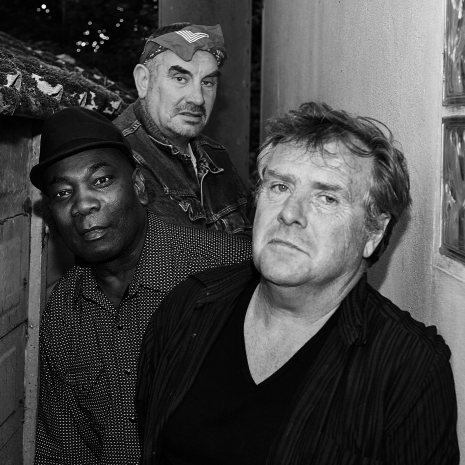
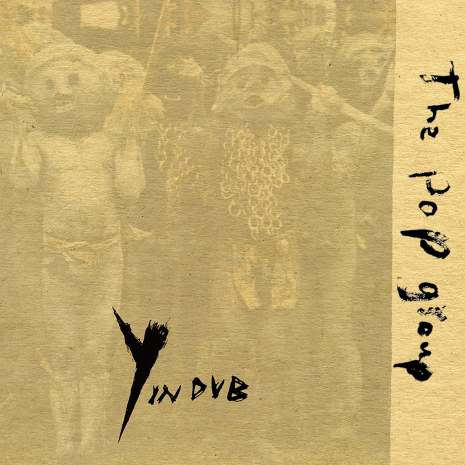
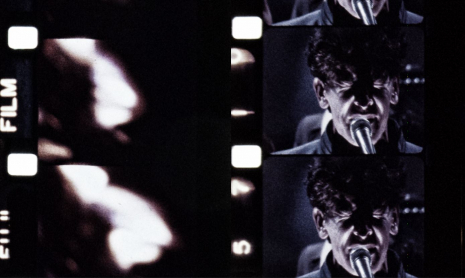
_465_769_int.jpg)

